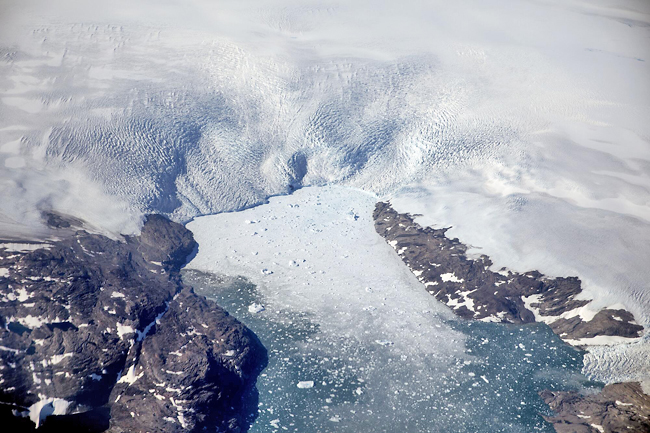OSLO (AFP) – A group of scientists warned of the greatly underestimated risk of a collapse of ocean currents in the Atlantic which could have catastrophic consequences for the Nordic countries as the region’s leaders gathered in Iceland.
In an open letter addressed to the Nordic Council, which is meeting this week in Iceland’s capital Reykjavik, the scientists said they wanted to bring attention “to the serious risk of a major ocean circulation change in the Atlantic”.
The “Atlantic Meridional Overturning Circulation” (AMOC) is a complex system of ocean currents, including the Gulf Stream, which carries heat from warmer regions to the north and is therefore crucial to living conditions in the Arctic.
The collapse of the system – which according to a recent study has already weakened – is one of the tipping points that concern scientists because of cascading effects they could trigger.
But there is no consensus on when this is likely to happen. The sixth assessment report by the United Nation’s (UN) Intergovernmental Panel on Climate Change (IPCC), expressed “medium confidence that the Atlantic Meridional Overturning Circulation will not collapse abruptly before 2100”.

However, the signatories of the open letter, argued that new research indicated that the risk had so far been “greatly underestimated”, and the “passing of this tipping point is a serious possibility already in the next few decades”.
They warned the impact on Nordic countries “would likely be catastrophic, including major cooling in the region while surrounding regions warm”.
That in turn would “likely lead to unprecedented extreme weather” and “potentially threaten the viability of agriculture in northwestern Europe”, they added.
But the impact would likely be felt globally, they said, with possible shifts in tropical rainfall belts and major additional rises in sea levels.
The Nordic Council gathers Denmark, Finland, Iceland, Norway and Sweden and their leaders are meeting in Reykjavik for a summit to which Ukrainian President Volodymyr Zelensky has also been invited.


